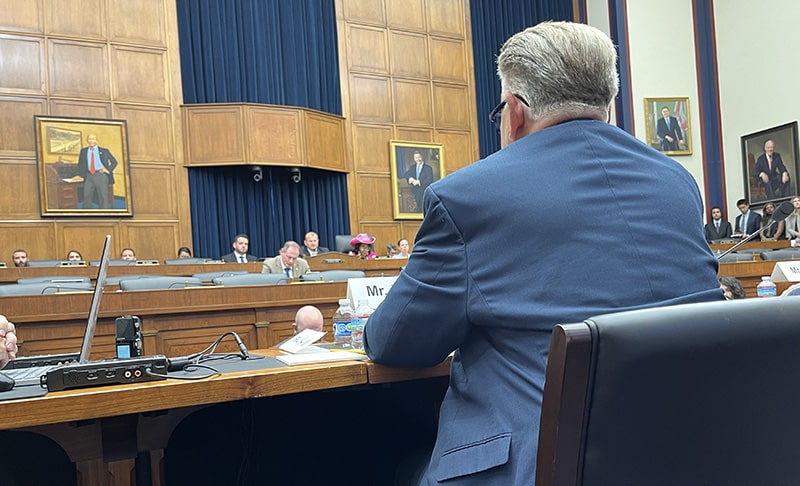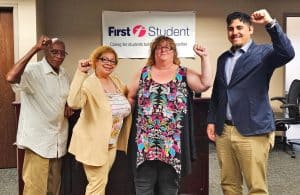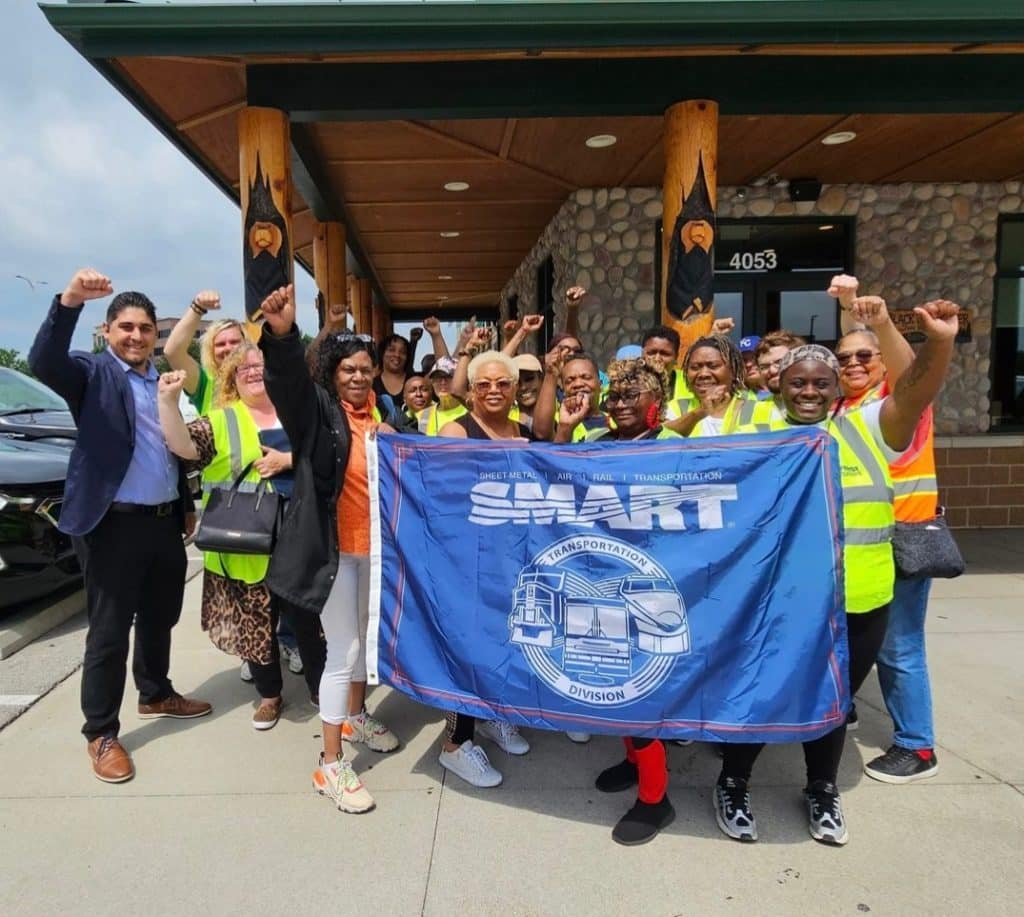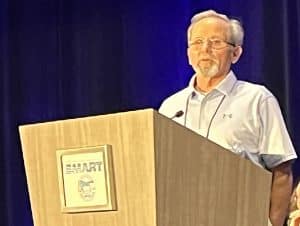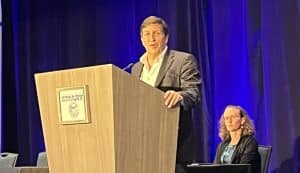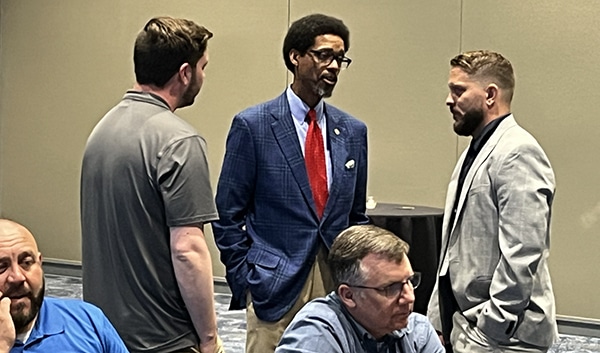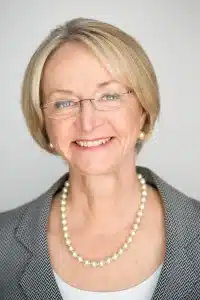Brother Aaron Hatter of SMART-TD Local 1594 (Upper Darby, Pa.) has only been a member of SMART-TD since June.
Aaron was operating his bus on the South East Pennsylvania Transit Authority (SEPTA) 108 Route from Upper Darby to the airport in southwest Philadelphia when a passenger got on the bus and informed him that he didn’t have enough money to cover his fare.
Hatter, who had received new-hire training from SMART-TD General Chairperson Anthony Petty knew he wasn’t supposed to put himself in harm’s way by arguing a fare with a passenger.
He took the correct course of action by not engaging and allowing the passenger to ride. As he was getting close to completing his run, he stopped to let this passenger off the bus at the corner of Church Lane and Connell Road in Yeadon about 1 p.m.
Member hurt in unprovoked confrontation
As the man exited the bus, he stopped and, without being provoked, stabbed Aaron twice, first in his face and then in his stomach.
Brother Hatter had to be rushed into surgery because doctors believed the knife had damaged his intestine. Fortunately, they were incorrect, and our brother is expected to recover fully.
“Aaron is a good new operator who does his job well,” GC Petty said of Hatter. “You hate to see any of our operators put in this situation, but in this case in particular, Brother Hatter did everything right and still ended up being violently assaulted.”
Recovery progressing, but frustration mounts for SMART bus union leader
Petty’s frustration was evident. He said when he went to talk to Hatter following the surgery, he was encouraged to hear that he is recovering well.
“I was glad to see Aaron is going to be all right, but this never should have happened.” Petty said. “Our operators know to file reports of physical assaults and altercations, but there is no mechanism to report verbal assault. A handful of our operators have had negative experiences with this particular passenger. Up to now, he has never become violent. He would make insulting comments and walk away, but it never escalated. We need to start documenting these verbal assaults and have a way to address these problems before they grow into situations like this with our member fighting for his life.”
SMART bus union taking action, to roll out reporting tool
SMART-TD agrees with Brother Petty 100%. An assault report designed by SMART-TD’s internal Bus/Transit Assault Prevention and Safety (BTAPS) committee will soon be made available on the SMART app and our website. This form will get this information into the hands of our local officers and BTAPS members.
With actionable information, these local officers will be better-equipped to ensure our brothers and sisters like Aaron are not caught off guard and unnecessarily put in harm’s way.
